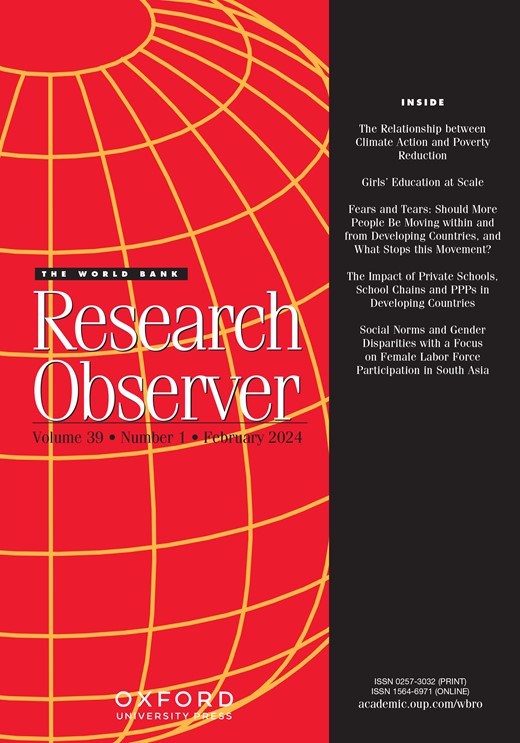从对外援助中学到什么“资源诅咒”?
IF 3.3
1区 经济学
Q1 DEVELOPMENT STUDIES
引用次数: 58
摘要
在经济学和政治学领域,已经出现了大量的文献来分析明显的“资源诅咒”——自然资源丰富的国家往往表现出更糟糕的经济和政治结果。作者研究了这种“诅咒”背后的所谓因果机制,并表明它们都集中在这些资源为政府带来的收入上。因此,关于这一主题的最新文献表明,在一个有能力的政府手中,自然资源不会产生负面影响,实际上可能会产生积极影响,这并不奇怪。因此,重要的问题是:在缺乏有效政府的国家,我们能做些什么?政策建议集中在(a)将资源从政府手中夺走或(b)让政府承诺以某种方式使用这些资金。这两种方法都不是特别成功,我们可以从对发展中国家另一个重要的非税收入来源——外援的研究中预测到这一点。回顾了外援与“资源诅咒”文献之间的密切相似之处,以及从援助文献中吸取的教训。这些教训表明,有必要对治理不善的资源丰富国家的做法进行重大改变。牛津大学出版社版权所有。本文章由计算机程序翻译,如有差异,请以英文原文为准。
What Can We Learn about the “Resource Curse” from Foreign Aid?
A large body of literature has arisen in economics and political science analyzing the apparent "resource curse"--the tendency of countries with high levels of natural resources to exhibit worse economic and political outcomes. The author examines the purported causal mechanisms underlying this "curse" and shows that they all center on the revenue that these resources generate for the government. As such, it is not surprising that the most recent literature on the topic has demonstrated that, in the hands of a competent government, natural resources have no negative consequences and may actually have positive effects. The important question therefore is: What can be done in countries without effective governments? Policy proposals have centered on (a) taking the resources out of the hands of the government or (b) having the government commit to use the funds in certain ways. Neither of these has been particularly successful, which we might have predicted from research on another important nontax revenue source for developing countries: foreign aid. The close parallels between the foreign aid and "resource curse" literatures are reviewed, as are the lessons from the aid literature. These lessons suggest the need for an important change in approach toward poorly governed resource-rich countries. Copyright 2012, Oxford University Press.
求助全文
通过发布文献求助,成功后即可免费获取论文全文。
去求助
来源期刊

World Bank Research Observer
Multiple-
CiteScore
12.60
自引率
1.20%
发文量
8
期刊介绍:
The World Bank Journals, including the Research Observer, boast the largest circulation among economics titles. The Research Observer is distributed freely to over 9,100 subscribers in non-OECD countries. Geared towards informing nonspecialist readers about research within and outside the Bank, it covers areas of economics relevant for development policy. Intended for policymakers, project officers, journalists, and educators, its surveys and overviews require only minimal background in economic analysis. Articles are not sent to referees but are assessed and approved by the Editorial Board, including distinguished economists from outside the Bank. The Observer has around 1,500 subscribers in OECD countries and nearly 10,000 subscribers in developing countries.
 求助内容:
求助内容: 应助结果提醒方式:
应助结果提醒方式:


